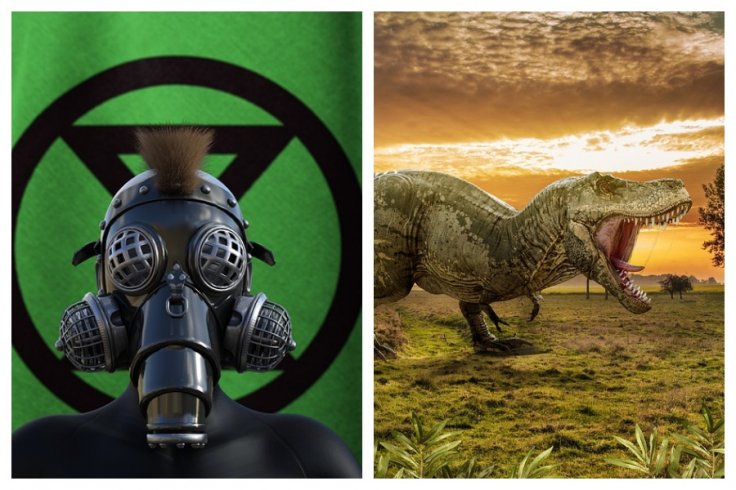
In the history of Earth, several species including dinosaurs had gone extinct due to several reasons, and a top scientist believes that humans will also face the same fate one day or the other. Nick Longrich, a senior lecturer at the University of Bath, believes that all life on earth will eventually go extinct, and humans are no different.
When will Humans Go Extinct?
Longrich claims that the entire humankind is now inevitably heading towards extinction, and it is just a matter of time before we get wiped out from the surface of the blue planet. Close relatives of home sapiens that include the Neanderthals, Denisovans, and Homo Erectus had gone extinct in the past, and it could happen with humans too.
Longrich made the claims in a recent article published in The Conversation. In the article, he revealed that humanity will be wiped out from the surface of the earth due to natural causes like asteroid impacts, volcanic eruptions, and earthquakes. He also made it clear that climate change and global warming due to human interference could cause doomsday on the Earth.
"Will our species go extinct? The short answer is yes. The fossil record shows everything goes extinct, eventually. Almost all species that ever lived, over 99.9%, are extinct. Humans are inevitably heading for extinction. The question isn't whether we go extinct, but when. The threat of earth-grazing asteroids is a media favorite. Mars is regularly mooted as a bolt hole. And there is the ongoing menace of the climate emergency," wrote Longrich in The Conversation.
Humans More Vulnerable to Extinction
Longrich believes that human beings are more vulnerable to extinction as they have warm blood running in their body. He also added that cold-blooded animals like turtles and snakes will partially survive an extinction event as they can survive months without food.
"Humans have vulnerabilities. Large, warm-blooded animals like us don't handle ecological disruptions well. Small, cold-blooded turtles and snakes can last months without food, so they survived. Big animals with fast metabolisms – tyrannosaurs, or humans – require lots of food, constantly. That leaves them vulnerable to even brief food chain disruptions caused by catastrophes such as volcanoes, global warming, ice ages, or the impact winter after an asteroid collision," claims Longrich.
Extinction Guaranteed If Humans Fail to Act
A few months back, Piotr Skubała a professor at the University of Silesia's Institute of Biology, Biotechnology, and Environmental Protection, had suggested that human activities are actually killing planet Earth. Skubala warned that humans should start acting immediately to protect the Earth, and if we fail to do so, the blue planet where life thrives could turn into a barren land.









